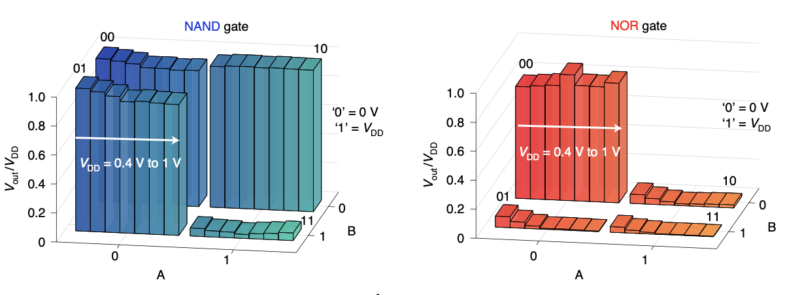
Enlarge / One gate, two behaviors. (credit: Peng Wu et al.)
At the moment, our processors are built on silicon. But fundamental limits on what can be done with that material has researchers eyeing ways to use materials that have inherently small features, like nanotubes or atomically thin materials. At least in theory, these will let us do what we're now doing, just more efficiently and/or with physically smaller features.
But can these materials allow us to do things that silicon can't? The answer appears to be yes, based on research published earlier this week. In it, the researchers describe transistors that can be reconfigured on the fly so that they perform completely different operations. They suggest this can be useful for security, as it would keep bad actors from figuring out how security features are implemented.
Doping vs. security
The researchers, based at Perdue and Notre Dame, lay out an argument for why this sort of reconfigurable circuitry could have security implications. It comes down to the materials science of silicon transistors. They require areas of silicon that either hold negative or positive charge (creatively named p- or n-type semiconductors). These are created by doping, or adding small amounts of certain elements to the silicon. This is done during the manufacturing, and the doping is locked into place at that point. This means that the operation of individual transistors is locked into place when the chip is made.
No comments:
Post a Comment